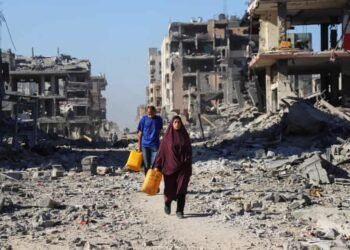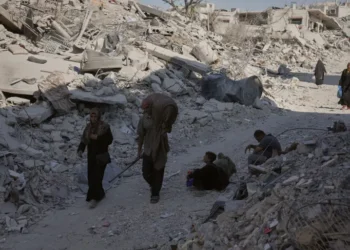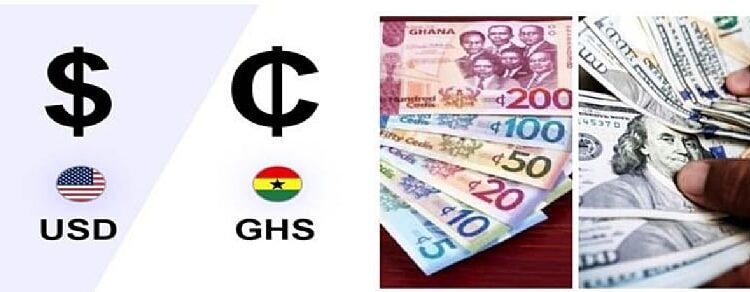War has long been recognized as a cataclysmic force that not only reshapes geopolitical landscapes but also exerts profound and lasting impacts on the economic fabric of nations.
Its effects span a spectrum from immediate, direct costs to far-reaching, indirect consequences that can reverberate through future generations. From the drain on financial resources to the displacement of populations, the economic fallout of war shape the financial, social, and developmental trajectories of nations embroiled in conflict.
As such, the intricate interplay between conflict and a nation’s economic destiny can not be overlooked.
This goes to say that broader ramifications of the Israel-Hamas war has reflected on the lives and livelihoods of the people in Gaza.
Prior to the ongoing war, poverty in Gaza was already severe. According to the World Bank, 61 percent of the population were considered below the poverty line in 2020.
Gaza’s unemployment rate is among the highest in the world. The enclave, under a blockade, has long been called an open-air prison.
Access to the crowded enclave of about 2 million people has been severely curtailed by Israel and Egypt for the last 16 years.
The current war with Israel has done nothing but exacerbate the enclave’s problems. Israel’s total blockade on fuel combined with severe restrictions on food, water and medical deliveries has triggered a humanitarian crisis.
One will not be wrong to say that the war has set the enclave lower in the pit of underdevelopment.
The UN has issued a report that accentuates the grim picture of Gaza’s economy.
As the war hit the one-month mark, poverty had risen by 20 percent and GDP had declined by 4.2 percent. The assessment also underscores that the International Labour Organization estimates that 390,000 jobs have already been lost.
The UN warned that if Israel’s war on Gaza continues for a second month, poverty among Palestinians will soar by 34 percent, sending nearly half a million additional people into poverty. The UN projects that the Palestinian GDP, which was $20.4bn before the war began, will drop by 8.4%. That’s a loss of $1.7bn.
If the conflict lasts a third month, Palestinian GDP will drop by 12.2%, with losses of $2.5bn and poverty increase by almost 45 percent more than 660,000 people pushed into poverty, it projects.
By comparison, UN Development Program Assistant Secretary-General, Abdallah Al Dardari said that the Syrian economy used to lose 1% of its GDP a month at the height of its conflict, and it took Ukraine a year and a half of fighting to lose 30% of its GDP, an average of about 1.6% a month.
The assessment warns of a sharp decline in the Human Development Index, UNDP’s summary measure of wellbeing, setting development in the State of Palestine back by between 11 to 16 years, and in Gaza by 16 to 19 years, depending on the intensity of the conflict.
With almost 1.5 million people in Gaza internally displaced since the beginning of the war and the massive destruction of houses reportedly destroyed or damaged, the assessment predicts that the economic downturn will further exacerbate the catastrophic humanitarian situation and will make recovery prospects challenging and slow.
Long Road To Recovery
As it stands now, hopes of restructuring of Gaza are low due to the uncertainty of how long the war will last. Israel has admitted, not once, that the war will be long.
Israel asserts that the wings of Hamas needs to be clipped off so as to prevent a recurrence of the October 7 assault. Seems like until then, the war goes on.
If perchance, the war ends or by somewhat miracle, a ceasefire is reached, recovery of the besieged enclave will take a great deal of time and efforts owing the intensive destruction.
ESCWA Executive Secretary, Rola Dashti, said, “Economic recovery in Gaza following a ceasefire will not be immediate, considering the large-scale displacement of the population, the massive levels of destruction and uncertain access to resources, including materials and equipment owing to the siege on Gaza.”
Achim Steiner also said, “This assessment alerts us that the impacts of this war will also have long-lasting effects and will not be confined to Gaza.”
Steiner added, “On top of the humanitarian catastrophe we see unfolding, there is also a development crisis. The war is rapidly accelerating poverty in a population already vulnerable before this crisis hit.”
READ ALSO: Russia Expresses Disbelief In EU Admission Of Ukraine





















